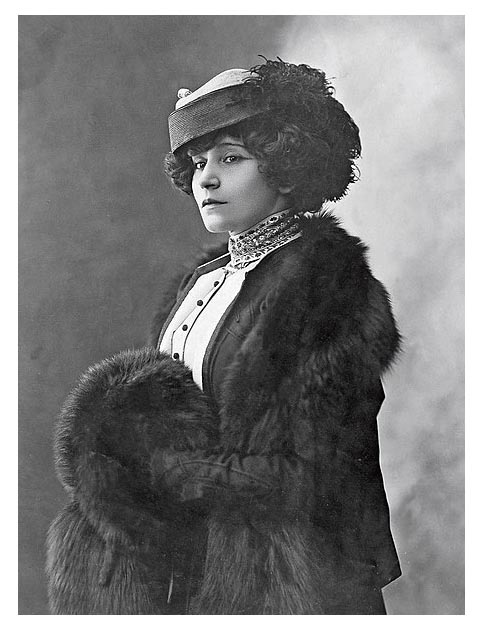
Sidonie-Gabrielle Colette was born January 28, 1873 in the Village of Saint-Sauvenur-en-Puisaye, Burgandy, France. Her father was a war hero and tax collector.
“When I was 12, I was queen of the earth.” She ran free through the woods under the careful eye of her much-loved mother. This feeling of returning to the maternal body in the joyous, milk-white dawn, the wisdom of the ceaseless cycles of Nature resurfaced in 1928 in her book, Break of Day.

She was a French author and a woman of letters. She was nominated for the Nobel Prize in Literature in 1948 and was a mime, actress and journalist. Her 1944 novella Gigiwas the basis for the 1958 film and the 1973 stage production of the same name.
Colette was the greatest French writer of the first half of the 20th Century and was the first woman elevated to the position of Grand Office of the Legion of Honor in 1953. She was a member than president of the Academie Goncourt and the first woman to be honored with a state funeral.
In 1893 she wed Henry Villars. Her first four novels appeared under his name. Colette later said that she would never have become a writer if it had not been for Henry or “Willy” as he was called. He was 14 years older than she. He introduced her to the avant-garde intellectual and artistic circles. He would lock her in her room until she produced enough pages to suit him.
The couple separated in 1906. He held the copyrights to her books so she initiated a stage career in music halls across France. She barely earned enough to survive and often went hungry and unwell.
In 1912 she wed Henry de Jouvenel, editor of Le Matin. They had a daughter in 1913. The marriage allowed her to devote her time to writing and she became an avid photographer.
Their marriage ended in 1924 partly due to his infidelities and partly to her affair with her 16-year-old stepson. In 1925 she met Maurice Goudeket who became her husband and he remained with her until her death.
In 1920 she published Cheri, portraying love between an older woman and a much younger man. The decades of 1920s and 1930s were her most productive and innovative. By then Colette was an established writer and was frequently acclaimed as France’s greatest woman writer. She has been hailed for her genius, humanities, and perfect prose, by literacry journals.
Colette created a poetic ferment of all the kingdoms of nature, plant, animal, human as well as everyday objects and food. “And you, black roses, you fragrant jam,” she wrote. She described the female gender as “a living corolla of the sea.” She compared that to male sexuality as a “state of misery.”
Colette was 67 years old when the Germans defeated and occupied France in 1940. She remained in Paris in her apartment in the Palais Royal. Her Jewish husband Maurice Goudeket was arrested by the Gestapo in December 1941. He was released after a few months through the intervention of the French wife of the German ambassador. During the occupation, Colette produced two volumes of memoirs.
She died at age 81 August 3, 1954 in Paris, France. Her resting place is the Pere Lachaise Cemetery in Paris.

